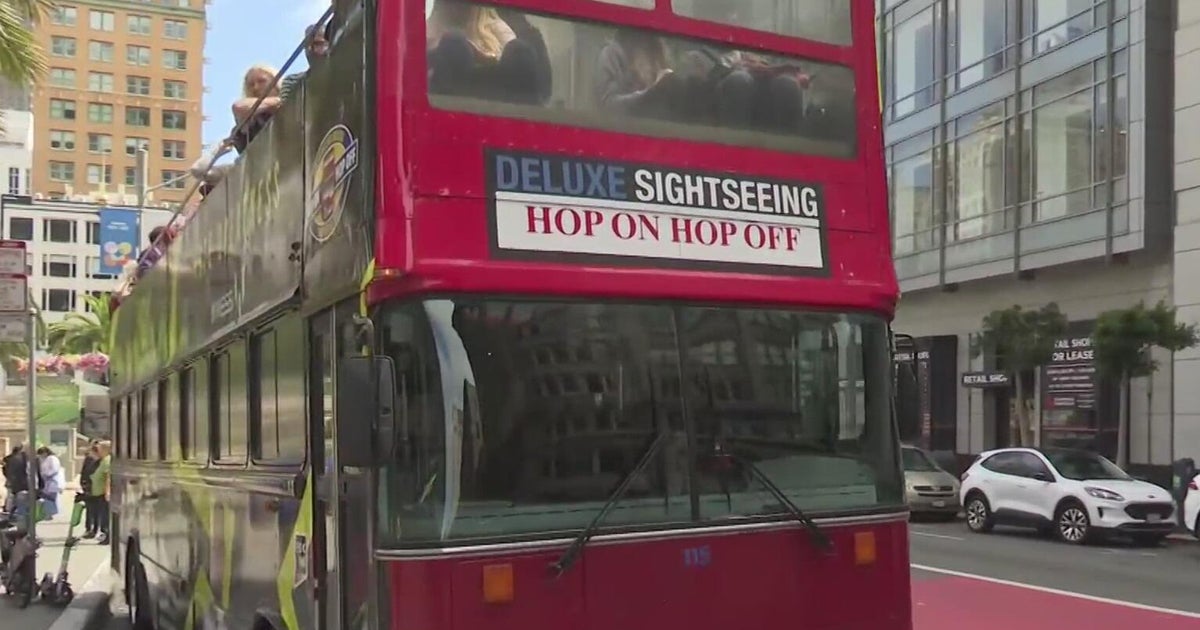Stanford-Lancet Report on Opioid Crisis Calls For Immediate Action, Sweeping Reforms
By Allen Martin & Molly McCrea
SAN FRANCISCO (KPIX 5) -- A new report on the nation's ongoing opioid crisis released Wednesday is calling for urgent steps to be taken for a deepening disaster that is afflicting every corner of the Bay Area.
Since 1999, more than 600,000 people in the United States and Canada have died of an opioid overdose. The pandemic has pushed the crisis to disturbing new heights.
Most of us when asked to consider the opioid crisis may think about San Francisco's Tenderloin neighborhood: the tents, the homeless, the mentally ill and the open-air drug dealing
But make no mistake about it. The rising tide of addiction and overdose deaths is found everywhere. KPIX 5 has spoken to grieving families from Silicon Valley to the wine country, Marin to Hillsborough, and the Tri-Valley. No one is spared.
"We might have overdose calls to traditional family homes to apartments," noted Pleasant Hill Police Officer Nicholas Filippini.
These days, fake or counterfeit pills full of fentanyl are flooding the market. They are often packed into pills that resemble other medications.
During the pandemic, that is how East Bay welder 24-year-old Tom Terry died. He was feeling anxious, and jobs were drying up. He sought out an acquaintance who said he had Xanax to sell. Tom took one, without knowing it contained three times the lethal dose of fentanyl and Terry fatally overdosed. HIs family is devastated,
"I got to this house as quickly as I could. And he was gone," said his mother, Denise.
14-year-old Valentina from Concord also died from an accidental overdose. A friend at her high school gave her half a pill, telling her it would relax her. Little did Valentina know that the drug contained a lethal dose of fentanyl.
"She was gone and that was like the end of her life," said her grieving father Walter.
Another casualty during the pandemic is Jeffrey Choate. Choate was born in Concord but raised in Clayton. His story is horrifying. It began with a painkiller prescription after his wisdom teeth were extracted. Soon, he fell into a full-blown addiction. To feed his habit and ward off the horrifying withdrawal, Choate stole from his parents, friends, and then some banks.
After spending time in prison, Jeffrey tried to stay clean and sober. KPIX 5 first met him mid-September 2021, when spoke with a group of health care providers in Contra Costa County. His intent was to educate them from his perspective. He felt hopeful. On January 2, he overdosed and died alone in a motel room close to his family home.
"This is an absolute crisis," exclaimed psychologist Dr. Keith Humphreys, the Esther Ting Memorial Professor and professor of Psychiatry and Behavioral Sciences at Stanford Medicine. He has advised both the George W. Bush and Barack Obama administrations in drug addiction and public policy.
Humphreys also chaired a 17-member opioid commission that issued the report, published in The Lancet medical journal. On the panel: clinicians, educators, pain medicine specialists, researchers and some individuals who had experience addiction themselves or suffered from chronic pain.
The commission concluded without a doubt that the pandemic has exacerbated the opioid problem.
"Our overdose death rate in 2020 went up over a third and that has never happened in American history - ever," exclaimed Humphreys
The opioid crisis has no parallel in the United States' drug history: more people have died of opioids than at the peak of the HIV/AIDS crisis. The epidemics financial costs have reached $1 trillion.
The Stanford-Lancet Commission is calling for sweeping reforms, targeting the medical community, the prison system, and better regulation of the pharmaceutical industry.
For example, the report calls for eliminating the marketing of controlled substances and would stop allowing the industry to deduct lavish marketing campaigns from their taxes.
"Let's not make it deductible anymore. We shouldn't have to pay for that," noted Humphreys.
Another area of reform: to end the incarceration for illicit possession of opioids or drug paraphernalia intended for personal use and to build up health care systems for those with substance abuse problems.
One other recommendation: to prevent pharmaceutical companies from employing aggressive marketing campaigns overseas.
The next step is to get all the stakeholders involved and to do it quickly.



